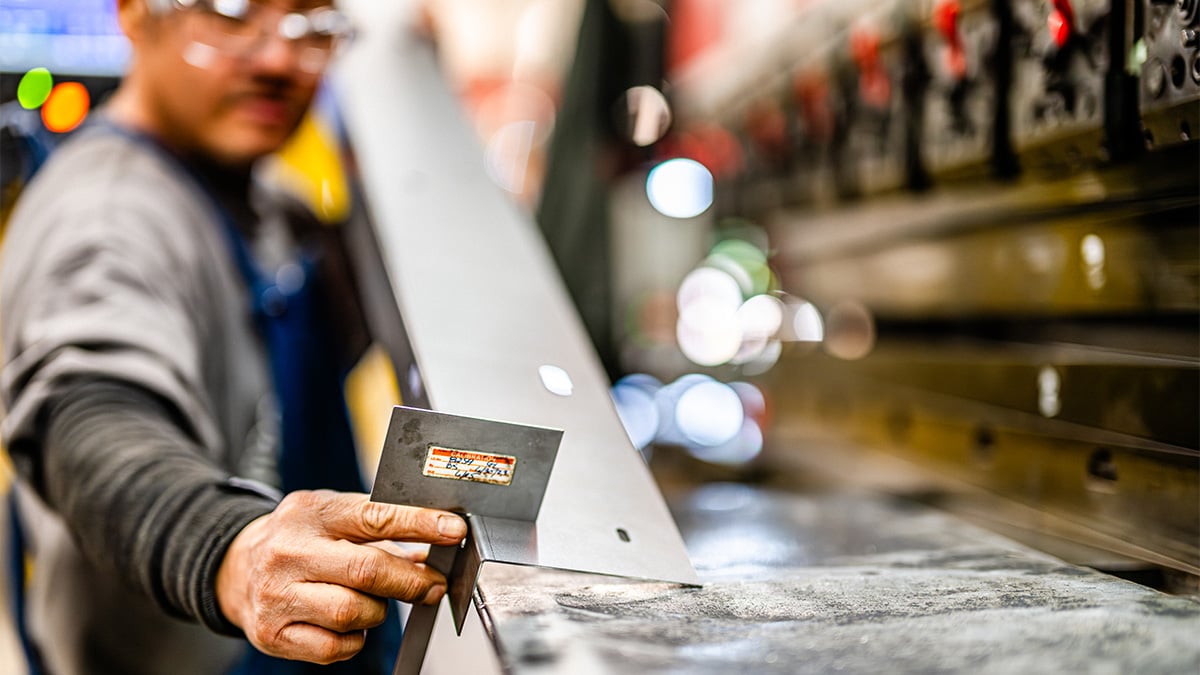- What's New
- Pricing & Purchasing
- Lead Times
- Literature & Samples
- Services & Warranties
- Careers
- Find a Rep
Sustainability at Scale: Inside KI's Commitment to Eco-Friendly Manufacturing

At KI, sustainability is a significant part of who we are. Learn how we break down our approach to sustainable manufacturing and minimize our environmental impact on the planet.
Every spring, like clockwork, our factories start buzzing more than usual – making and assembling the furniture that will be shipped to schools and colleges throughout the summer in preparation for the new academic year. As a leading manufacturer of education furniture, this is indeed our busy season. The pace quickens—as we know it will each year at this time—but it’s always genuinely an exciting time for us.
And while we love to help create inspiring new facilities across the country, we are very aware of the environmental tolls that both manufacturing and building construction have on the planet.
Here’s how we actively work to overcome that ongoing challenge and minimize our overall environmental impact.
Pride in Manufacturing: Employee Ownership
KI is committed to reducing the environmental impact of both our processes and our products. It’s a commitment that stems from our employee-owned culture, which drives us to operate with an “owner mindset” with the decisions we make in our roles and work together toward success in all we do.
Moreover, employee ownership profoundly shapes our corporate value system. We take pride in local manufacturing – not just what we make, but how we make it. As a company, we’re focused on helping students and teachers achieve success in education. We naturally want to ensure that future generations have a healthy planet on which to thrive.
But that can be a daunting task—especially when looking at the numbers. The EPA cites that in 2018 alone, the United States sent 145 million tons of construction and demolition debris from buildings directly to landfills. Compounding the problem, in that same year, it was recorded that 9.7 million tons of furniture were thrown away – with only 40,000 tons being recycled.
What a problem this large, how does a manufacturer begin to address these issues?
In short: sustainability is complex. It touches our manufacturing processes in many ways, but we’ve found the best way to simplify our approach to environmental stewardship is to categorize our efforts in three primary ways:
-
operations and manufacturing
-
material safety
-
product life cycle
Let’s break those down.
1. Operations and Manufacturing
Our commitment to sustainability starts at our corporate headquarters in Green Bay. Reviewing and improving how we operate is a cyclical, ongoing process. We track our energy usage and greenhouse gas (GHG) emissions every year, and we set reduction goals for the coming years.
In 2023, we reduced our GHG emissions by 17% and our energy consumption (from nonrenewable energy) by 23.1% over our baseline year of 2017. We achieved these results by implementing new energy-saving technologies, tightening our building envelope, and updating our capital equipment. While proud of these accomplishments, we also used this data to establish new reduction goals of 25% by 2025 for both GHG emissions and energy consumption (based on our 2017 benchmark).
reduced greenhouse gas emissions in 2023
reduced total energy consumption in 2023
combined GHG and energy reduction goal by 2025
In addition to monitoring GHG emissions, we invest in renewable energy. KI is home to one of the largest photovoltaic systems in Northeast Wisconsin, with our facilities in Green Bay using 480 PV solar panels—spanning 22,820 square feet of rooftop space—to generate 115,000 kilowatt hours (kWh) of clean energy. To put this in context, that’s enough energy to power 5,886 single-family homes for a full week.
Another way we commit to sustainability is demonstrated in how we transport our furniture. We recently adopted a full fleet of KI-owned SmartWay vehicles, which are certified by the EPA as the top 20% lowest-emitting cars and trucks for their model year. Because of this, we know that more than 50% of our shipments are routed via SmartWay vehicles. We also monitor our logistics and consolidate our destinations to maximize truck capacities and reduce the number of trucks we have on the road at any given time.
2. Material Safety
At KI, we make products that last. For that reason, it is our responsibility to ensure that the materials we use are environmentally friendly and non-toxic, integrate the highest levels of recycled content, and can be easily recycled at the end of their useful life.
To oversee this process, our Design for the Environment (DfE) team—a cross-functional group comprised of members from our design, procurement, manufacturing, and sustainability teams—conducts a full material analysis when considering a new product or refining an existing product. This team works collaboratively to find better alternatives or materials that improve a product's recyclability, biodegradability, and overall environmental impact.
To highlight our commitment to safe and sustainable materials, we invest in product certifications and environment product declarations. This makes it easy to understand what goes into our products and how they can contribute to your own sustainability goals. As of today, we have achieved LEVEL certification for 146 of our products. We also certify products for various other criteria, including Indoor Air Quality through SCS Global Services, Healthy Hospitals Initiative, and Red List Identification (both Red List Free and Red List Approved).
For full transparency, all of our environmental certifications are available via our eco-friendly furniture page—where you can filter by sustainability conformance, percentage of recycled content, and more—as well as sites such as ecomedes, of which we’re proud to be a part. We want to make it easy for you to find and select products that fit your sustainability criteria and help you to identify products that can contribute to building certifications such as LEED and WELL.
3. Product Life Cycle
As a manufacturer, we feel a responsibility to extend the life of our products and divert as much waste as possible from going to landfills. We don’t believe in fast furniture simply for the sake of convenience; rather, we focus on quality. A holistic view of the product life cycle—monitoring from cradle to grave—is among the reasons why quality is so important to us.
To solidify this commitment to quality, we offer lifetime warranties on many products along with best-in-class total cost of ownership in product lifecycle management.
While we can’t control what happens to our products once they leave our hands, we can make it easier for you to make sustainable decisions. That’s why we offer easy-to-follow instructions to disassemble and recycle individual product components. We can also help to remove, repurpose, resell, or recycle products when you no longer need them.
A Promise that Matters: Commitment to Sustainability
As we navigate the bustling spring season of manufacturing and supplying furniture for schools and other commercial facilities across North America, we at KI remain steadfast in our commitment to environmental stewardship. It’s become a fiber of our being, deeply knitted within the processes of our manufacturing, our material safety, and our total product life cycle.
However, we know there is still more work to do. Across the globe, greater action is needed. We recognize that the journey toward sustainability is ongoing and complex. To do our part at KI, we will continually seek new ways to improve our performance and minimize our impact on the planet. We do this because it’s important to us; we know it’s important to you, too. Together, we can build a brighter, greener future for generations to come.
Read more about KI’s sustainability efforts in our 2023 Social Responsibility Report.
Subscribe
Stay up to date with the latest trends and more.










